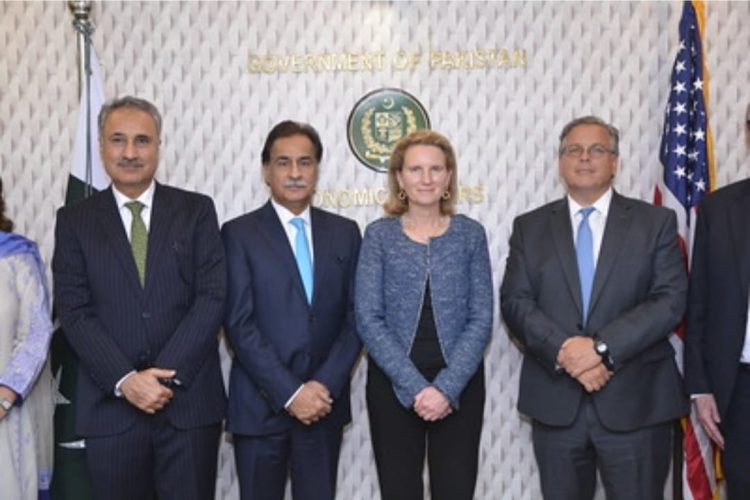ISLAMABAD: Pakistan and the United States have reaffirmed their longstanding bilateral development cooperation relationship with the signing of a new five-year agreement. The agreement was finalized during a meeting between the Ministry of Economic Affairs and the U.S. Agency for International Development (USAID), and it marks a significant milestone in the continued partnership between the two nations.
Representing Pakistan, the Federal Minister of Economic Affairs, Sardar Ayaz Sadiq, and Secretary of Economic Affairs, Dr. Kazim Niaz, joined the delegation from the United States, which included visiting USAID Deputy Administrator Isobel Coleman and USAID/Pakistan Mission Director Reed Aeschliman, in signing the agreement.
This renewed agreement underscores the shared commitment of both countries to work together on crucial development objectives that are of mutual importance. Key areas of focus highlighted in the agreement include climate change, resilience, clean energy, sustainable economic growth, inclusive democratic governance, education, and health security.
With the United States being one of the largest providers of development assistance to Pakistan, this agreement reflects the ongoing collaboration between the two nations. Through partnerships with the Government of Pakistan, civil society, and international organizations, the United States has been actively engaged in supporting programs aligned with Pakistan’s priorities.
Of particular significance is the U.S.-Pakistan “Green Alliance,” a framework aimed at advancing cooperation in agriculture, water management, and clean energy. This initiative will play a pivotal role in addressing environmental challenges and promoting sustainable practices in Pakistan.
Both Pakistan and the United States are optimistic about the prospects of this renewed agreement and the continued advancement of their partnership. By joining forces, they aim to make substantial progress in key areas, fostering development, and addressing shared challenges to ensure a prosperous and resilient future for both nations.

















